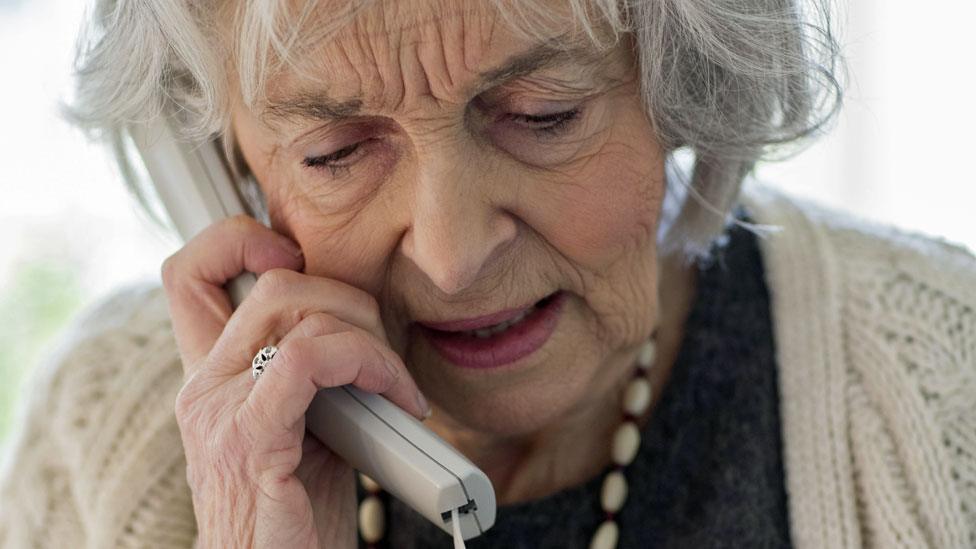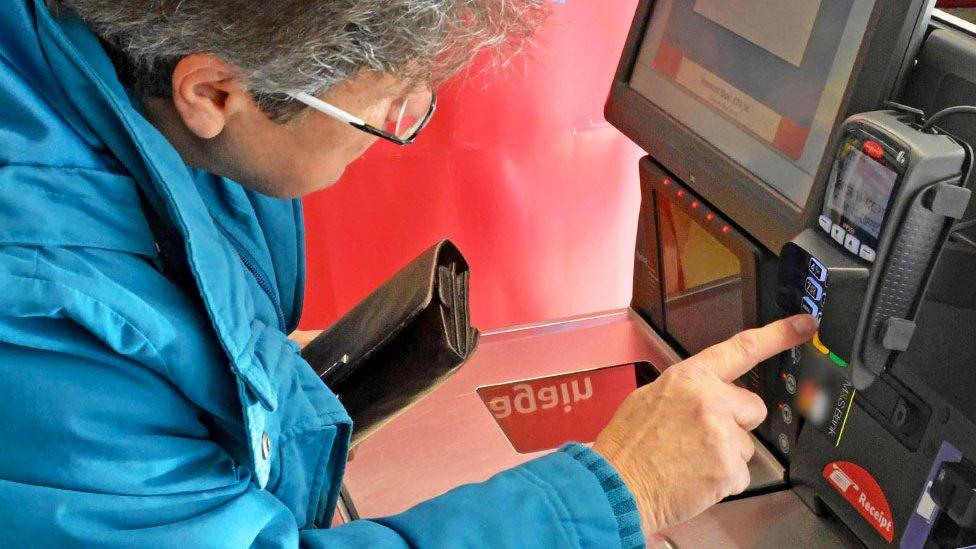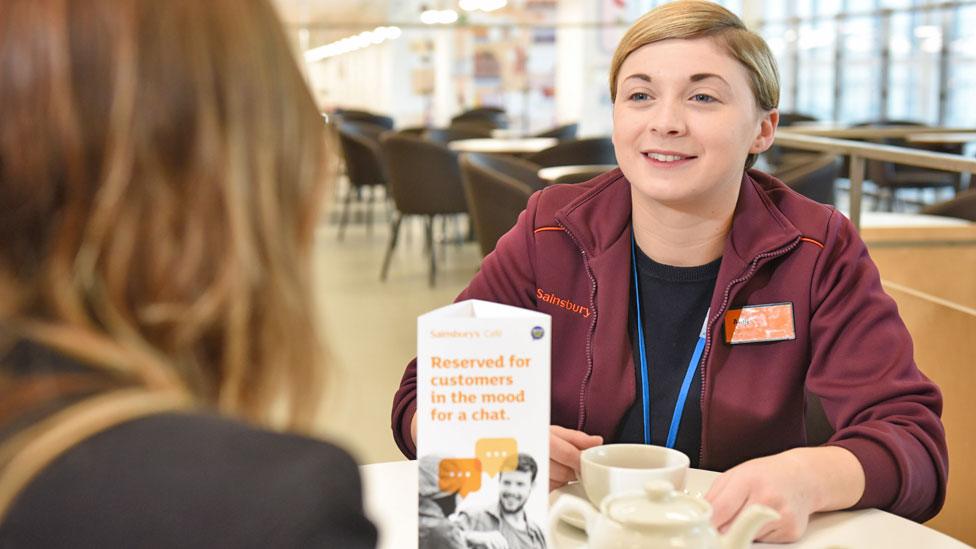Last local paper shuts so elderly ring MP for news
- Published
- comments

Elderly people are so starved of information after their last local paper closed, an MP has said, they are calling his office for news updates.
Robert Halfon, MP for Harlow in Essex, said many older people did not have access to online news and were left "isolated" when papers close down.
"I was amazed to have elderly residents ringing my office to say would I keep them informed of the news," he said.
The loss of newspapers was a "tragedy" for local communities, he said.
The absence of printed local newspapers had left many older people "disenfranchised" and cut off from finding out what was going on around them, said Mr Halfon.
The Harlow Star, the last of three local papers in his constituency, had recently stopped printing, the former minister said, cutting an important thread holding the local community together.

MP Robert Halfon says it is wrong to assume that everyone has easy access to online news
"I described it as a tragedy - and people accused me of hyperbole but I stand by my words," said the Conservative MP, who chairs the Education Select Committee.
"People are completely isolated.
"Especially if they're elderly, they've no idea what's going on, what's happening to the hospital, what the council are deciding, what the schools are doing, what their grandchildren are doing."
There was a good local news website, Mr Halfon said, but "you have to be online to look at it".
He warned against an assumption that everyone had the internet and online news at their fingertips.
"So many people do not have this," he said
"It's not just older people, because there are a lot of people who don't have access to a computer or the internet.
"They may have a phone but they can't afford the data package or they might only look at it now and then."

A quarter of local and regional papers have closed in the past decade
Charities for the elderly have warned that older people can be particularly affected by the loss of local services, such as High Street shops, post offices, libraries and pubs.
Nyree Ambarchian, who volunteers with the Contact the Elderly charity, said: "I see first-hand that these issues are contributing to feelings of isolation.
"Slowly but surely, the local fabric of our communities is being eroded by things like the decline of local newspapers, which older people rely heavily on as a source of information and communication."
The charity's chief executive, Meryl Davies, said: "We always imagine that the internet is everywhere but half of the older people in the UK have never been online."
A quarter of all regional and local newspapers have closed in the past decade, according to the Department for Digital, Culture, Media and Sport.
In response, the government has commissioned an independent review into finding a sustainable future for journalism, chaired by Dame Frances Cairncross, which is soon expected to report back.
Information gathered for the review showed that income from advertising and circulation for newspapers had fallen sharply and that about 320 local papers had stopped publishing between 2007 and 2017.
This reflected changes in technology and "consumer behaviour", says evidence for the review, with readers and advertising moving online and away from the printed press.
- Published21 November 2017

- Published22 September 2017

- Published15 October 2018

- Published11 December 2012
